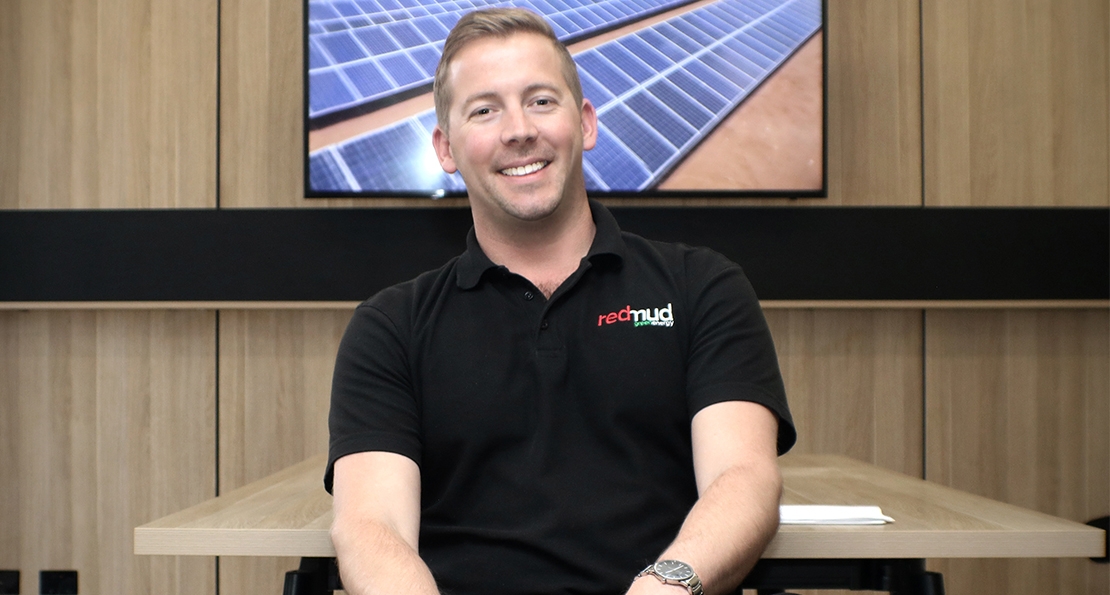Renmark-based Yates Electrical Services (YES), which has already developed and constructed over 80 small-scale solar farms in the last five years, is teaming up with Sustainable Energy Infrastructure (SEI) to develop a platform of mid-large scale solar projects in regional South Australia (SA) and Victoria (VIC).
The partnership will see 20 MW of solar developed over the next 18-months, with the first projects off the rank set to be a 4 MW site in Renmark and a 2 MW farm in Bowmans, South Australia. Both projects already have development approval and construction is beginning immediately.
YES’s Redmud Green Energy (RGE) project has seen over 80 regional farming communities take up the opportunity to invest in solar farming on their property. As Managing Director of YES, Mark Yates, told pv magazine in an interview in June 2019: “If you can provide a solid business case this also assists in people’s decisions to invest and proceed in solar farming.”
No doubt this is exactly what Mark with SEI under the management of Whitehelm Capital on behalf of a consortium of Australian superannuation funds. Only last week a new report from Net Zero Momentum Tracker found that the Australian superannuation sector, which is expected to hold a majority of ASX-listed equity by 2040, is accelerating its divestment from risky greenhouse gas-emitting fossil fuels. So it is no surprise that SEI decided to team up with a proven solar article like YES.
Whitehelm’s Head of Australia and Asia, Saji Anantakrishnan, said that SEI’s unitholders are looking forward “to working with Mark Yates and Yes Group to deliver a portfolio of efficient energy solutions with a strong focus on sustainability and supporting local communities…”
Anantakrishnan described the partnership as typical of the consortium’s “mid-market infrastructure strategy, which focuses on building long-term complementary partnerships with experienced industry counterparties to ensure strong value creation through an identified pipeline of growth opportunities.”
Yates was similarly optimistic, describing the deal as being “right in the sweet spot for YES Group, leveraging our high-voltage construction expertise along with our YES Energy capability to manage the sale of energy, ultimately through to the end consumers. This is an exciting long-term strategic relationship with great potential as the energy market continues to evolve through its transition to renewables.”
Small-scale sea change
Australia, and in particular South Australia, is seeing a surge of small-scale utility solar as the niche (sub-5MW), can fly under the radar of much of the electricity network’s congestion woes. These constraints and the lassitude of regulators and policymakers to transition our network into the 21st-century is driving a surge in smaller-scale solar farms. For South Australia and Victoria, these projects may prove the path of least resistance until transmission upgrades, such as the SA-NSW interconnector, can unlock the gigawatts of planned renewable energy developments.
Indeed, according to Fimer, the small-scale surge is actually causing an inverter rethink about whether PV power plant developers and EPCs should adopt string or central inverters considering some small-scale projects might benefit from having string inverters alongside centralised solutions.
Considering the solar sector and Australia’s arcane network are getting little popular support from the Federal Government, it is great to see the private sector finding ways to drive the renewable energy transition through its own strategic partnerships.
This content is protected by copyright and may not be reused. If you want to cooperate with us and would like to reuse some of our content, please contact: editors@pv-magazine.com.









1 comment
By submitting this form you agree to pv magazine using your data for the purposes of publishing your comment.
Your personal data will only be disclosed or otherwise transmitted to third parties for the purposes of spam filtering or if this is necessary for technical maintenance of the website. Any other transfer to third parties will not take place unless this is justified on the basis of applicable data protection regulations or if pv magazine is legally obliged to do so.
You may revoke this consent at any time with effect for the future, in which case your personal data will be deleted immediately. Otherwise, your data will be deleted if pv magazine has processed your request or the purpose of data storage is fulfilled.
Further information on data privacy can be found in our Data Protection Policy.